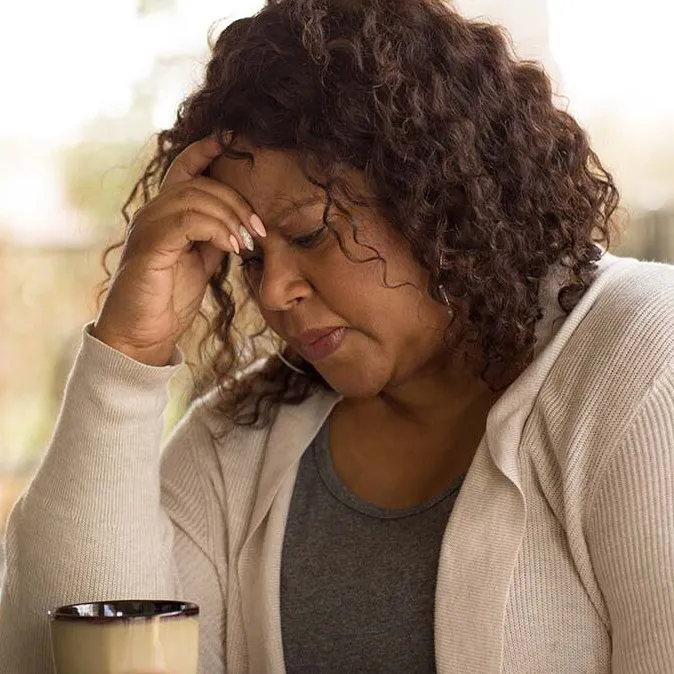
Published on: 5 July, 2022
Read Time: 4 min
Menopause is a natural process that will impact every woman differently. While menopause itself occurs over months or years, for some women, the experience can be extremely difficult and challenging. Vaginal dryness, hot flashes, mood changes, and slowed metabolism are just some symptoms of menopause that may be experienced. Below is an in-depth look at the core symptoms of menopause
Hot flashes and night sweats
Hot flashes and night sweats are the most common symptom of menopause. Up to 85 percent of women going through menopause will report experiencing these at one time or another. It is not clear exactly how hormonal changes in menopause cause hot flashes but one theory is that the decreased estrogen levels cause your body’s internal thermostat to become more sensitive to slight changes in body temperature. Hot flashes can last for months to years as your body transitions through menopause. Things that may help include
- Avoid alcohol, spicy foods, and caffeine.
- If you smoke, try to quit.
- Dress in layers that can be removed at the start of a hot flash.
- Carry a portable fan to use when a hot flash strikes.
Vaginal dryness or painful intercourse
As the name suggests, vaginal dryness is usually felt as a dryness within the vaginal area. However, it may also come with: Itchiness in and around your vagina and pain/discomfort during sex. Vaginal dryness can impact sex, vaginal health, and urinary health. It can also affect emotional health and confidence. There are a number of methods used to deal with vaginal dryness such as: Over-the-counter lubricants, vaginal moisturizers and estrogen patches.
Difficulties with sleep
Poor sleep is often related to night sweats. The unpleasant sensation of extreme heat during the night is often paired with unexpected awakenings. Not getting enough sleep can affect all areas of life. It can lead to feeling irritable or depressed, cause daytime tiredness and cause you to be more forgetful than normal. It is thought that about a third of women will experience a worsening of their sleep around the time of their menstrual period. If your difficulty sleeping is related to night sweats, consider some of the tips above.
Mood changes
As hormone levels in the body change, sudden and unexpected changes in mood may be experienced. Sometimes these mood changes take the form of extreme and sudden feelings of panic, anxiety, or anger. It may also include:
- Irritability
- Feelings of sadness
- Lack of motivation
- Difficulty concentrating
These feeling can be unrelated to specific events happening in your life or the emotions may feel disproportionate to the circumstances around you. For example, if you experience extreme anger in a situation that has never caused this reaction in the past, this may be related to menopause hormonal changes.
While it is difficult to deal with sudden and unexpected mood changes, options to consider include:
- Recognize those times when your moods are more likely a reflection of hormonal changes rather than the situation itself. This may allow you to pause, step back and work through those emotions rather than react right away.
- Learning ways to relax such as mindfulness or yoga.
- Reducing stress where possible.
When to see your doctor
It is important to note that these core symptoms above do not represent the only symptoms of menopause, just the most common.
The degree to which symptoms are experienced will be felt differently by each woman. It is advised that if any symptoms -physical, emotional or psychological, start to affect your quality of life, then make an appointment to see your doctor.
Management of menopause symptoms
The symptoms of menopause can be managed using one or more of the following options:
- Estrogen (hormone therapy) – This is an effective treatment for relieving menopausal hot flashes. Hormone replacement therapy is prescribed based on your personal medical history.
- Diet and exercise changes – An effective way to help lessen some menopausal symptoms.
- Vaginal cream – for vaginal dryness.
- Low-dose antidepressants -certain antidepressants may decrease menopausal hot flashes.
- Natural supplements – there is limited evidence that some natural supplements such as Soy and Vitamin E -may help with symptoms. However, speak to your doctor first before starting anything new.





